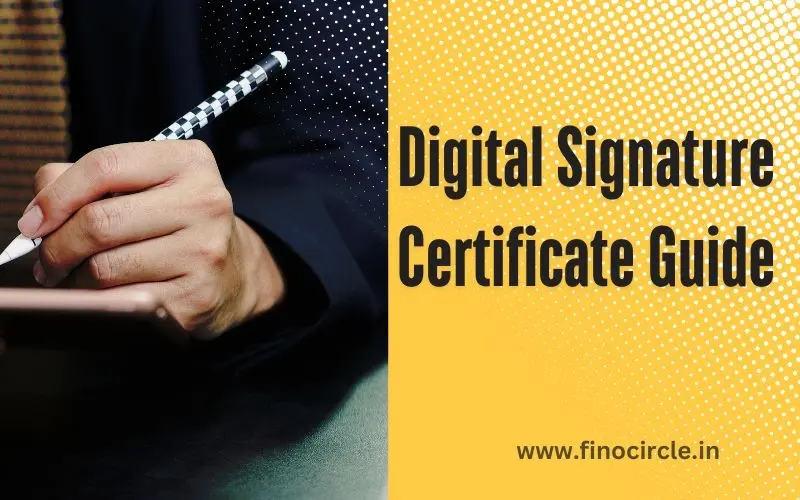Accounting & Financial Management
Business Registrations
Tax & Regulatory Compliance
Annual Compliance Services
About Company

Index
ToggleDue to digital transformation businesses need trusted, secure, verifiable way to conduct online transactions. That’s why every organization needs Digital Signature Certificates (DSC), which serve legal purposes, protect sensitive digital information, and reinforce digital trustworthiness. Through filing tax returns and e-tendering activities, as well as company registration and confidential agreement signing, businesses can authenticate their identity and safeguard communications at the highest encryption level by using DSC. Digital India and global cybersecurity trends create dynamic regulatory changes that make understanding and proper digital signature certificate use and application mandatory for all businesses.
The guide encompasses all fundamental aspects of digital signature certificates, including their explanations alongside their benefits and applications, pricing, legal needs, and operational excellence practices.

Digital Signature Certificates serve as securely issued digital keys that establish the identity of users and entities while getting certification from authority providers. Digital signature operations are secured through asymmetric cryptography.
Electronic security of communication relates closely to the implementation of Public Key Infrastructure (PKI) technology for digital signature protocols. The Digital Signature Certificate generates crucial cryptographic elements, which consist of a private key and a public key when applied for use. A signer maintains private key secrecy while the public key becomes available for public distribution. The system generates Digital fingerprints in hash value form before encryption with the signer’s private key. The document receives an attachment containing the digital signature certificate and its secure hash function.
The encryption process uses the public key to reveal the hash, which produces an identical new hash value from the document content when recipients open it. The exact mathematical equality of the hash outputs verifies that both document integrity remained intact and the signature originated from its rightful origin. The document undergoes tampering when the signature hash does not match the signature hash calculated during verification. Organizations endorse digital signatures since they supply authentication functions to maintain data integrity and avoid signature denial capabilities through their encryption and verification processes.
Encryption and Hashing Algorithms
SHA-256 hashing and RSA encryption together create the maximum security level in most DSC systems.
Digital Signature Certificates exist in two additional categories beyond Class 1, Class 2, and Class 3.
Under the Information Technology Act of 2000, India establishes rules that authorize the legal use of DSCs. The use of DSCs is required when you engage in the following activities:
Several organizations, such as eMudhra, Capricorn CA, and SafeScrypt, serve as authorized Certifying Authorities (CAs).
Documents Required for DSC Registration
To apply for Digital Signature Certificate online you can visit any of the authorized certification authorities.
The price of a Digital Signature Certificate depends on various factors, including the certificate class and validity duration, as well as USB token purchase.
Cost Breakdown
Class Approx. Cost (INR)
Class 1 500-700
Class 2 1000-1500
Class 3 1500-2500
Learn more about the cost of Digital Signature Certificates.
Setting Up Your DSC
Signing a PDF
Click on Adobe Acrobat, then use Fill and Sign, and select the certificate to start your signature.
Digital Signature Certificate Download
You can get secure DSC downloads through most certifying authority websites.
Security and Best Practices
Digital signatures protect against any attempt to copy them between different documents. No. Users can copy signature images by visual means, but the encryption stays unique, and transfer is impossible.
How to Renew?
Upgrading Classes
The DSC class changes from Class 2 to Class 3, depending on your specific business operations.
Record Keeping
Audits require proper documentation of DSC issuance logs.
You will not find any genuine Class 2/3 certificates that are offered at no cost. Beware of scams!
The Electronic Signature Certificate represents an essential electronic document needed for secure digital signatures. The term includes all electronic means of signing documents. A Digital Signature Certificate stands as a particular type of protected electronic certificate.
Your private key receives superior protection when you use tokens to resist cyber-attacks.
Digital Signatures possess equivalent legal validity to handwritten signatures when used for legally binding documents as per the Information Technology Act of 2000. Indian law recognizes Digital Signature Certificates that come only from Licensed Certifying Authorities authorized to issue them. Double-check the validity of the certificate before making any purchase at a CA.
Your business needs security protocols to defend its digital identity because successful market operations in today’s digital world cannot be achieved through compliance only. Your organization obtains integrity-based security, authentic representation, and operational effectiveness through its Digital Signature Certificate (DSC).
Modern businesses can achieve the required trust component through Digital Signature Certificates that benefit organizations from start-ups to multinationals and public contractors. Organizations gain access to multiple opportunities through DSC because the system enhances document processing speed, protects transactions, and improves the outcome of competitive tender submissions. Digital signatures bring immediate advantages that make adopting them unnecessary since you should not base your decision on cyber threats or regulatory penalties. The need to grasp control over your digital destiny has become an urgent requirement for the present time.